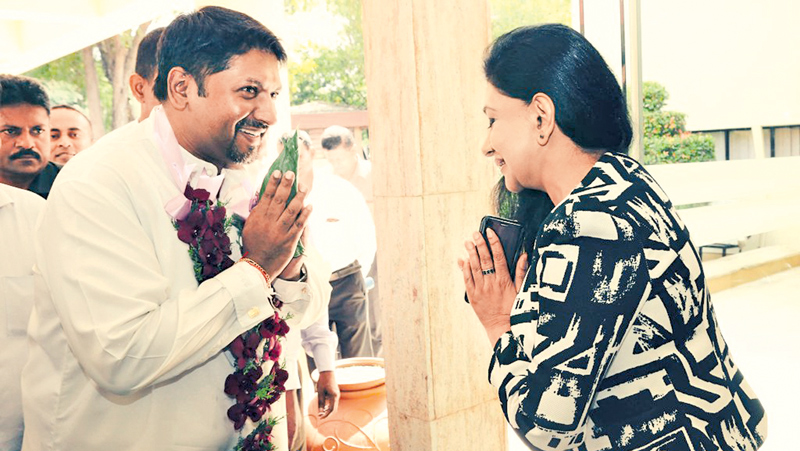September 15, 2019 (LBO) - The Presidential election in Sri Lanka is about to be called, and in approximately just two months, the nation will know who it's next President will be. In the backdrop of this impending election, there are preliminary battles being fought all over the political playing field.
There is a battle for the Presidential candidacy of the UNP, a battle for the direction of the SLFP, battles in the courts with regard to cases of political significance, and now coming to the forefront is the battle for the state media.
The state media institutions have often on been on the front lines in the battle for state power. This was recently evident during the constitutional crisis, where all state media institutions were abruptly taken over, and almost immediately their editorial policies shifted to blatant state propaganda.
The most senior and respected journalists like Dharisha Bastians were not even allowed to peacefully function at Lake House, the home of Sri Lanka's largest state owned print media publications. The take over of state media during the constitutional crisis was forcible. However, we never even got to determine whether it was legal or not, as there were more important battles to be fought on the streets and in Parliament.
Now, all of a sudden, the President again is testing the limits of his powers. However, unfortunately, because those limits have not been defined in the Courts, we don't even really know what those limits are.
The 19th amendment is a new amendment. It was a transformational new piece of the constitution which was the subject of much back and forth negotiation. What was initially an election pledge and later attempt to abolish the Executive Presidency, was walked back to preserve some powers for it's new incumbent. Some of the preserved powers will disappear for the next President as per transitional provisions in the constitution.
As far as this writer is aware, the limitations of the 19th amendment have only been tested twice in the courts. The first was on the length of the current President's term, and the second was on the early dissolution of Parliament. Interestingly, in both the above mentioned cases, the constitution seems quite clear, and the courts have ruled as such.
There are many other aspects on the 19th amendment where we have not defined the limits of presidential power. During the constitutional crisis, the provision on the removal of the Prime Minister was not tested in court, as the parliamentary numbers game ended up superseding it.
Another thing that has not been tested is the President's power to gazette particular subjects under certain ministries. Does this have to be done on the advice of the Prime Minister?
buy lasix online buy lasix online no prescription
Or can these things be done solely on the prerogative of the President as has been the case with the Law and Order Ministry, and more recently Rupavahini.
Another recent issue seems to the the unilateral Presidential swearing in of UNP MP Kabir Hashim, who broke ranks with other Muslim ministers and took back his cabinet portfolio. Does this have to be done on the advice of the Prime Minister? The swearing in did happen, but was it legal?
Without litigating these issues, we do not know what the limits of Presidential powers actually are under Sri Lanka's recently amended constitution. The case of Rupavahini is a particularly interesting one.
Rupavahini is a state media institution. Unlike the law and order ministry, it has never been under the Ministry of Defense. If Rupavahini can be put under the Ministry of Defense, what about other state institutions? The slippery slope goes on. What if the President decided to gazette all state institutions under the Ministry of Defense? Surely this power could not have been the intention of the legislators who voted for the 19th amendment?
The courts can easily define what the limits of certain Presidential powers under the 19th amendment are, but in order to do so cases must be brought forward. This is indeed a unique opportunity to sharpen the constitution and create legal precedents that will define and strengthen it.
Today we have a President who has just two months left in office, and it is almost an impossibility that he will be re-elected. Political pressure on the courts will be at its weakest point in recent history. Lawyers must bring the case on Rupavahini to Courts for them to define the limits of Presidential power. If they don't bring the case, we will likely leave a greater mess for future generations to have to clean up. The time is ripe for action.

